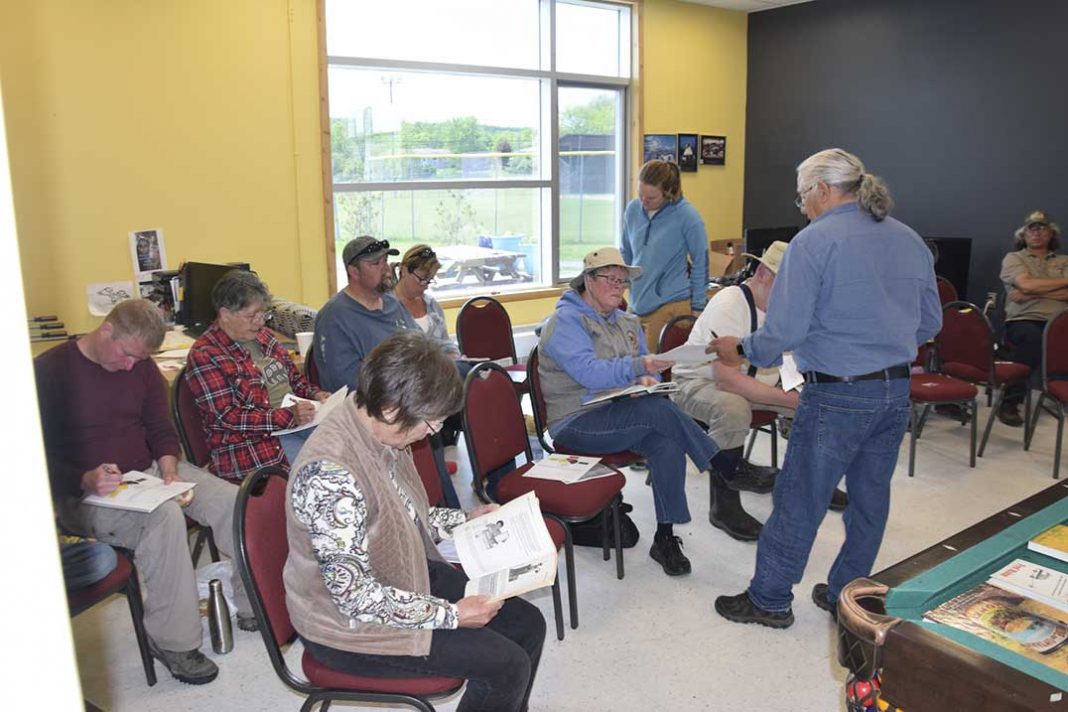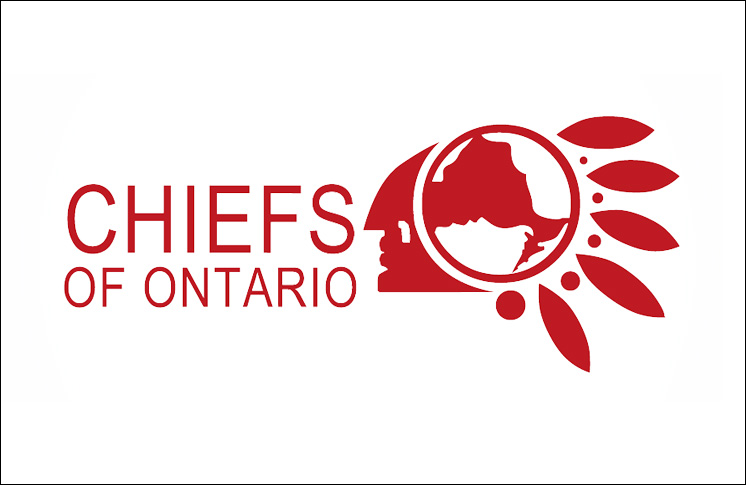AUNDECK OMNI KANING – Beekeeper Wayne LeBlanc has been hauling in a sweet harvest as an accomplished apiarist for more than 15 years and recently he shared the knowledge he has garnered through experience on what it takes to become a beekeeper, including apiary (bee yard) setup and live extraction. A real sweetener for the students was that they could each bring home their very own copy of the Ontario Beekeeping Manual. Bee suits were supplied—but not to take home.
Mr. LeBlanc currently lives in Lively, but is a Wiikwemkoong band member who plans to return someday and currently has a couple of bee yards on the Island. “I had a lot of great assistance with the course from Gail Jacko, she’s quite a good beekeeper, and Dwayne Elliott, who is starting up a bee supply business locally who supplied a lot of the equipment,” he said.
The course was limited to 24 people and was fully subscribed, with both those planning to take up the hobby and some just attending out of interest.
The Introductory Beekeeping course was part of the Manitoulin Community Fresh Food Initiative spearheaded by Kristin Bickell at Noojmowin Teg and funded in part by that organization, the Ontario Trillium Foundation, Manitoulin Community Fresh Food Initiative and the Child Poverty Task Force Manitoulin.
“It was a lot of fun,” said one young attendee. “I learned a lot.” But when it came to whether he was planning to start keeping bees, the seven-year-old was reluctant to commit.
“We covered quite a bit, but it is hard to do it all in a day,” said Mr. LeBlanc. He has already been asked whether he would consider holding another course in September. “I will be doing another one soon in Serpent River.”
One of the more important pieces of information imparted by Mr. LeBlanc to his students was the importance of not keeping your bee suit equipment inside your home or anywhere where it would be in close regular contact with people.
“The venom from bee stings is toxic,” he said. “When it dries out and the dust becomes airborne it can cause a very dangerous allergic reaction.”
Following some simple precautions, however, beekeeping can be quite fun and rewarding. But like any agricultural pursuit, things have to happen on the bee’s schedule, not necessarily yours.
Mr. LeBlanc asked The Expositor to provide a follow up on the government’s “bear fund” for his students. “I had mentioned that OMFRA (Ontario Ministry of Food and Rural Affairs) will compensate beekeepers for wildlife damage,” he said, “but I wasn’t able to get into my laptop to provide the information. This is the process: first take pictures, second, contact the provincial bee inspector for your area, third apply for compensation inside of 72 hours and four, get a premises identification number.”
Mr. LeBlanc said the process seems deliberately set up to make it almost impossible to collect.
A premises identification number is a unique identifying number assigned to a parcel of land that is associated with agri-food activities. When you register your bee yard (a free but mandatory process) In Ontario, premises are identified and registered in the Provincial Premises Registry at www.ontarioppr.com. The contact number is 1-888-247-4999.
“More information is available on the Ontario Wildlife Damage Compensation Program from omafra.gov.on.ca,” he said.
Mr. LeBlanc said he was also looking for a small bee jacket that was misplaced after the course. “It has the SDBA logo on the left front,” he said. “My thanks to the attendees, it was very enjoyable in spite some of the organizational problems. Remember PPPPP (military slang for “preparation planning prevents p**s poor performance).”




